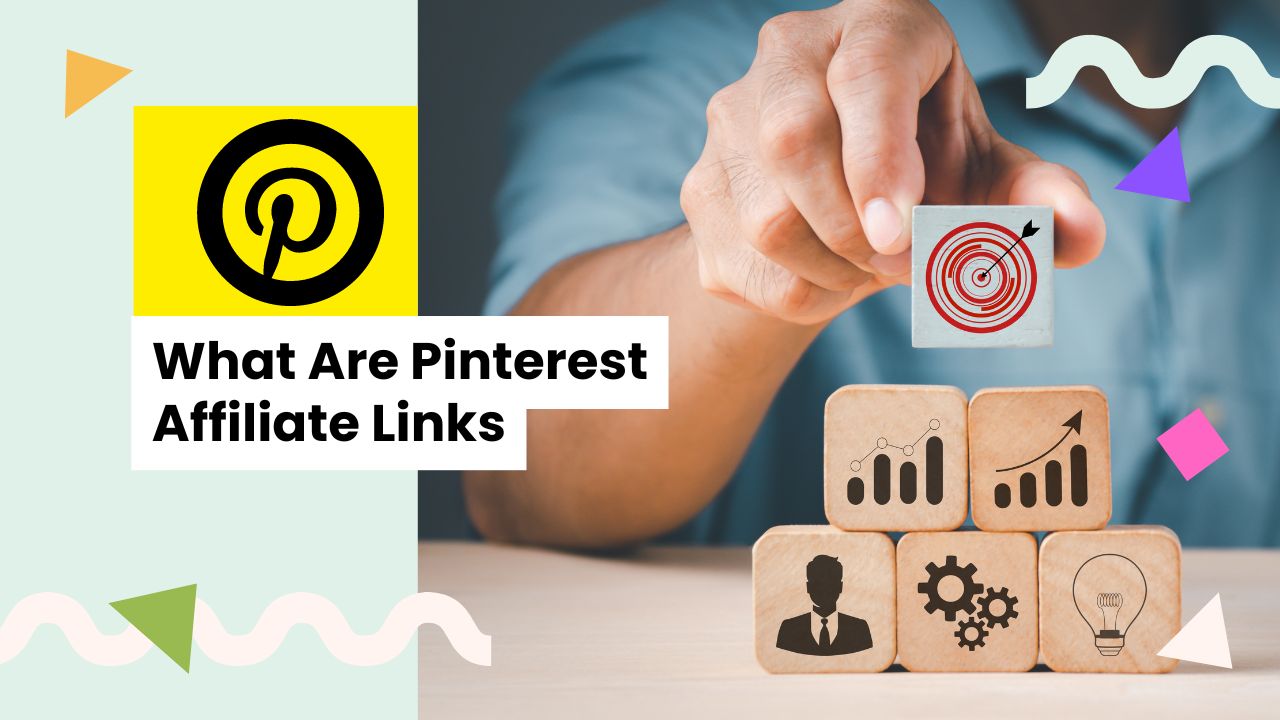Pinterest Affiliate Links: A Guide to Earning Money on Pinterest
Pinterest has grown beyond being just a visual search engine and inspiration hub. It has evolved into a powerful platform for affiliate marketing, where users can generate income by promoting products and services through affiliate links. Monetizing Pinterest through affiliate marketing is simple yet requires a strategic approach to make it work effectively.
In this blog post, we’ll explore the basics of using Pinterest Affiliate Links, tips for successful promotion, and how to ensure your efforts are compliant with Pinterest’s policies.
A Pinterest Affiliate Links are unique URL provided by an affiliate program or network, which tracks the sales or actions made through your referral. When someone clicks on your affiliate link and makes a purchase, you earn a commission.
Using Pinterest Affiliate Links allows you to share content that includes these referral links. For example, if you are part of an affiliate program with a clothing retailer, you can create Pinterest pins showcasing items from their catalog, linking directly to the product page with your affiliate link.
How to Use Pinterest Affiliate Links?
Getting started with affiliate marketing on Pinterest is relatively straightforward. Here are the steps to follow:
- Join Affiliate Programs: The first step is to sign up for affiliate programs that suit your niche. There are numerous programs, including Amazon Associates, ShareASale, and Rakuten, which offer a wide variety of products.
- Create Affiliate Pins: Once you’re part of an affiliate program, you can start creating pins that showcase the products or services you want to promote. Use high-quality images or videos that resonate with Pinterest users. Include a compelling description that highlights the product’s benefits.
- Add Affiliate Links: In your pin, use your unique affiliate link in the destination URL section. This way, when users click on the pin, they’ll be directed to the product page, and your affiliate program will track any purchases made.
- Disclose Affiliate Relationships: Transparency is key to maintaining trust with your audience. Pinterest requires that you disclose when a pin contains an affiliate link. You can add a note like “#affiliate” or mention that your pin contains affiliate links in the pin description.

Tips for Successful Affiliate Marketing on Pinterest
- Focus on Quality Content: To succeed in affiliate marketing on Pinterest, you must create visually appealing and engaging content. High-quality images, eye-catching graphics, and clear, informative descriptions are essential. Use Pinterest’s built-in tools like video pins, carousel pins, and idea pins to stand out.
- Pin Consistently: Like most social platforms, consistency is key on Pinterest. Regularly pinning affiliate content helps increase your visibility. Scheduling tools like Tailwind can help you automate the process and keep your profile active.
- Promote Products That Align with Your Audience: The best way to succeed with Pinterest affiliate marketing is by promoting products that resonate with your audience. Please make sure the products or services are relevant to your niche and that your followers will find them valuable.
- Use Keywords in Descriptions: Pinterest is a search engine, so using the right keywords is essential for visibility. Incorporate relevant keywords related to the product or service you’re promoting. This will help your pins appear in search results and reach more users.
- Utilize Pinterest Analytics: Pinterest’s analytics tools allow you to track the performance of your affiliate pins. Use this data to see which pins clicks and conversions. This insight can help you refine your content strategy.
Pinterest Affiliate Links Policies
Pinterest allows the use of affiliate links, but there are a few guidelines to keep in mind:
- Disclosure: You must disclose the use of Pinterest Affiliate Links in your pins to ensure transparency with your audience.
- No Spam: Avoid excessive pinning of the same affiliate link repeatedly. Pinterest values user experience, so spamming could lead to account suspension.
- Relevant Content: Ensure that your pins and descriptions are relevant to the product or service being promoted. Misleading content or misrepresentation of products could result in penalties.
Conclusion
Pinterest offers a fantastic opportunity for affiliate marketers to monetize their content. With its visually-driven platform and massive user base, you can effectively promote products through high-quality pins. By following Pinterest’s guidelines, creating valuable content, and staying consistent, you can turn Pinterest into a powerful affiliate marketing tool that boosts your income.
If you’re ready to explore Pinterest affiliate marketing, now is the time to start crafting pins that resonate with your audience and generate revenue through your Pinterest Affiliate Links.
